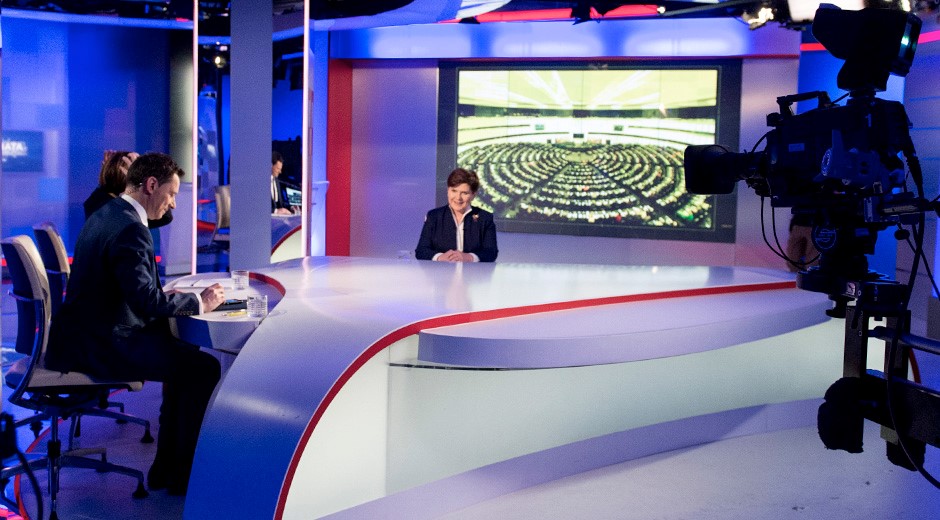Negative attitudes towards Poland’s public broadcaster TVP have risen to their highest ever level, and outweigh positive attitudes for the first time. TVP has in recent years been used as a mouthpiece by Poland’s government.
The findings come from regular polling conducted by CBOS, a state-linked research institute. It found that 44% of Poles now say they have a “bad” opinion of TVP, while only 40% have a “good” one.
Positive attitudes have fallen steadily from above 80% before 2015, when the national-conservative Law and Justice (PiS) party came to power and began to exert influence over public media. Negative views have risen from around 10% over the same period.
Od października wyraźnie pogorszyły się oceny mediów publicznych – TVP oraz publicznego radia, a także Radia Maryja. Spadek ocen TVP jest na tle jej notowań wyjątkowo głęboki, po raz pierwszy odsetek głosów krytycznych (44%) przewyższył liczbę pozytywnych opinii (40%). pic.twitter.com/91OflN4Ixp
— CBOS (@CBOS_Info) May 11, 2021
CBOS notes that positive attitudes towards public radio, which has also become increasingly politicised, and for Radio Maryja, a Catholic broadcaster whose founder, Tadeusz Rydzyk, is close to the government, have likewise declined.
Public media in Poland, though statutorily obliged to be neutral, have always been under some influence from whichever government is in power. But PiS has used them to an unprecedented degree to promote its own narrative and attack opponents.
Ahead of last year’s presidential elections, news broadcasts on TVP regularly criticised opposition candidate Rafał Trzaskowski, accusing him of working on behalf of a “powerful foreign lobby” linked to George Soros and of seeking to “fulfil Jewish demands”.
They also included regular positive coverage of the re-election campaign of incumbent president, PiS ally Andrzej Duda, who earlier in the year had approved a proposal by PiS to boost TVP’s annual state funding by 2 billion zloty (€440 million).
OSCE election observers noted that TVP’s “biased, xenophobic and antisemitic” reporting had “undermined voters’ ability to make an informed choice…[and] amplified the advantage of the ruling party”.
Under PiS, Poland has fallen to its lowest ever position in the annual World Press Freedom Index. Reporters Without Borders, which compiles the ranking, notes that state-owned media have been purged of dissenting employees and “transformed into government propaganda mouthpieces”.
Other polling has found declining trust towards public media in recent years. Recent studies by IBRiS and Reuters show that Poles are more likely to seek information from privately owned media than from public ones.
PiS and its supporters, however, argue that changes in public media are part of a necessary rebalancing of Poland’s media landscape, which they claim was previously dominated by opposition-supporting outlets, some of which have foreign ownership.
Main image credit: P. Tracz/KPRM (under public domain)

Daniel Tilles is editor-in-chief of Notes from Poland. He has written on Polish affairs for a wide range of publications, including Foreign Policy, POLITICO Europe, EUobserver and Dziennik Gazeta Prawna.




















